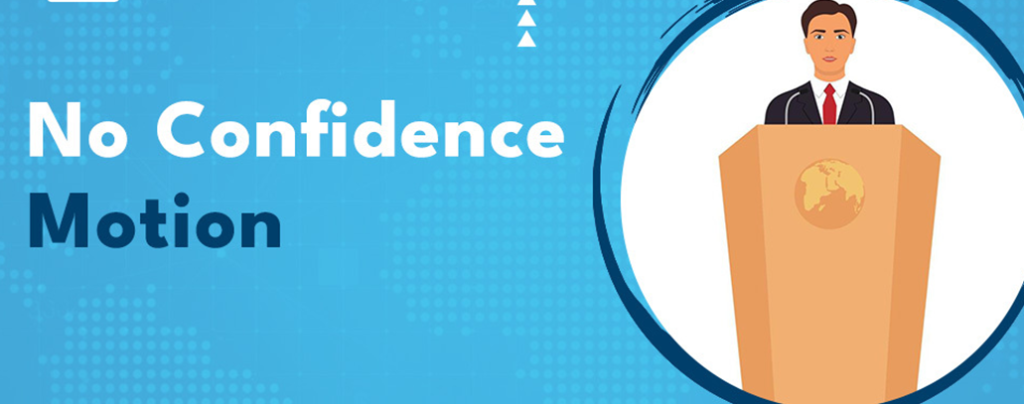Canadian Prime Minister Justin Trudeau has said he plans to resign as Liberal Party leader, amid mounting internal dissent. His announcement follows a swirl of speculation over his political future following public spats with former allies, a no-confidence motion that was called for later in January and falling poll numbers.
Canadian PM Justin Trudeau Announced His Resignation
Why In News
- Canadian Prime Minister Justin Trudeau has said he plans to resign as Liberal Party leader, amid mounting internal dissent. His announcement follows a swirl of speculation over his political future following public spats with former allies, a no-confidence motion that was called for later in January and falling poll numbers.
- In announcing his intention to step down as party leader, he noted the uphill battle the Liberals face as they head into a federal election season. He explained he would step aside once a replacement has been found.
- “ This country deserves a real choice in the next election, and it is become clear to me that, if I’m having to fight internal battles, I cannot be the best option in that election.”
Who is Trudeau
- Trudeau, 53, swept to power in 2015 and led the Liberals to two more ballot box victories in 2019 and 2021.
- The eldest son of the charismatic former Prime Minister Pierre Trudeau, who died in 2000, Justin Trudeau came to politics after working as a snowboard instructor, bartender, bouncer and teacher.
- He was first elected to the House of Commons in 2008 to represent a working-class Montreal neighbourhood.
- He overhauled the Senate with the aim of making it less political and more transparent by ending partisan appointments and creating an independent, merit-based selection process.
- He also signed a new trade deal with the United States and introduced a carbon tax to reduce Canada’s greenhouse gas emissions during his first two terms as prime minister.
- The father of three also legalised cannabis, held a public inquiry into missing and murdered Indigenous women and passed legislation permitting medically assisted suicide.
- Trudeau reflected on some of his accomplishments while in office.
- “We got elected in 2015 to fight for the middle class, and that’s exactly what we’ve done over the past years,” he said. “We’ve reduced their taxes, we’ve increased the benefits to families, we made sure the economy was focused on working for everyone and not just a few.”
Reasons For Resignation
- Trudeau’s popularity has waned in recent months, with his government narrowly surviving a series of no-confidence votes and critics calling for his resignation.
- After months of criticism within the party which led to his political isolation, Trudeau’s leadership came under staunch scrutiny following a series of political disasters. He had pledged to stay on to guide the Liberals to elections but has faced further pressure from incoming US President Donald Trump, who has threatened a 25-percent tariff on Canadian goods.
- Deputy Prime Minister Chrystia Freeland quit in December after disagreeing with Trudeau over how to respond to Trump’s apparent plan, in the first open dissent against the prime minister within his cabinet.
- In a post on X, Freeland said she was leaving after Trudeau asked her to step down as finance minister. She cited disagreements with the prime minister, including how to handle Trump’s tariff threat and “‘America first’ economic nationalism”.
- Since then, an increasing number of Liberal parliamentarians, alarmed by a series of gloomy polls, have publicly urged Trudeau to quit.
- After Trudeau gave into those calls on Monday, many, including Freeland, applauded his decision.
- “I thank Justin Trudeau for his years of service to Canada and Canadians. I wish him and his family the very best,” Freeland wrote on social media.
- One of the reasons behind his downfall is believed to be Trudeau’s controversial allegations against India, especially over Khalistani militant Hardeep Singh Nijjar’s killing. Further, Trudeau claimed that India was sponsoring some criminal activities on Canadian soil, a claim vehemently denied by New Delhi.
- Another major trigger behind Trudeau’s fall was the increasing Pro-Khalistani activities and sentiments in Canada, including several attacks on a Hindu temple near Toronto, which further fuelled diplomatic tensions between the two nations.
- While India continued denying any involvement in Nijjar’s killing, emphasising that he was a designated terrorist by India’s National Investigation Agency (NIA). A few months ago, Justin Trudeau lost the support of his key ally leading to a vote of no-confidence against the prime minister in Parliament.
- Somehow managing to garner the fragile support of other small parties to form a coalition, Mr Trudeau’s minority government survived. This began a process of introspection within the Liberal Party, with several MPs unhappy with the way Justin Trudeau was managing the party and the country.
- The Canadian dollar, which had been on a downward spiral since September and was at a new-low, has appreciated since Trudeau decided to step down as leader of the Liberal party and in-turn the prime minister.
- Canada’s economy, which is already facing problems like slowing growth, high inflation, a stagnant GDP, and crumbling trade policies, is now also facing an existential crisis with Donald Trump threatening massive tariffs.
What Happens Next
- Trudeau has requested that Canada’s Parliament face a period of prorogation, pausing its sessions until March 24. Governor General Mary Simon has approved the request.
- As for the Liberals, Trudeau’s departure is set to kick off a competition to name his successor as party leader.
- That race comes at a pivotal time for the party, as it faces a federal election, slated to be held before October 20. Polls suggested that, under Trudeau’s leadership, the Liberal Party would have badly lost to the rival Conservatives if the vote were held imminently.

















